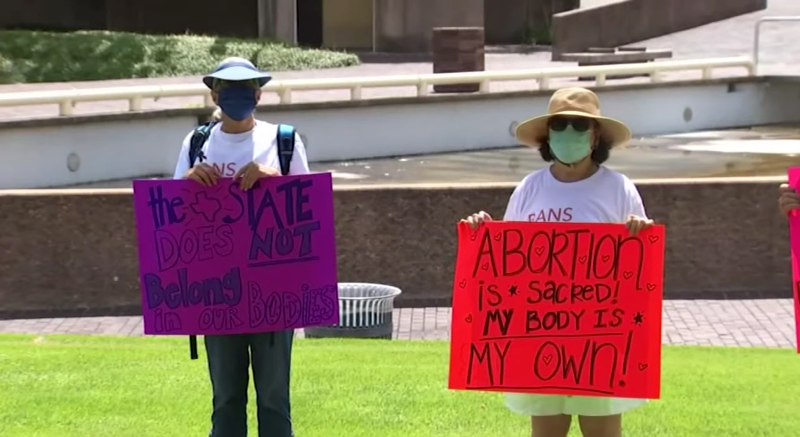In one of the first major rulings on an abortion issue since liberal justice Ruth Bader Ginsberg passed away last year, Ginsberg’s replacement Amy Coney Barrett sided with her fellow conservative justices Neil Gorsuch, Brett Kavanaugh, Clarence Thomas and Samuel Alito in refusing to block the law from being enforced.
The five conservative justices refused to sign their ruling, while the court’s three liberal justices Sonia Sotomayor, Stephen Breyer and Elena Kagan, as well as typically conservative Chief Justice John Roberts, all submitted signed dissents.
“In reaching this conclusion, we stress that we do not purport to resolve definitively any jurisdictional or substantive claim in the applicants’ lawsuit,” read the unsigned majority opinion. “In particular, this order is not based on any conclusion about the constitutionality of Texas’s law, and in no way limits other procedurally proper challenges to the Texas law, including in Texas state courts.”
That leaves the door open for future challenges to the law on constitutional grounds, but those will likely only follow from counter-suits once an abortion provider or someone who aids someone who receives an abortion after a fetal heartbeat is detected (typically around six weeks of pregnancy) is successfully sued for $10,000 in civil damages as allowed by the law.
Given that most pregnant Texans aren’t aware of their pregnancies at the six-week mark, abortion advocates contend that the new law effectively bans all abortions in the state of Texas. Abortion groups in Texas have said that 85 to 90 percent of abortions in Texas have traditionally been performed after six weeks of pregnancy, and many providers have began telling patients they’ll have to go out of state to get the abortions they desire.
In his dissent, Roberts describes how Texas’ law “is not only unusual, but unprecedented” given that the state has “essentially delegated enforcement of that prohibition to the populace at large. The desired consequence appears to be to insulate the State from responsibility for implementing and enforcing the regulatory regime.”
Sotomayor blasted her conservative colleagues in her dissent. “Presented with an application to enjoin a flagrantly unconstitutional law engineered to prohibit women from exercising their constitutional rights and evade judicial scrutiny, a majority of Justices have opted to bury their heads in the sand,” Sotomayor wrote.
On Wednesday after the Texas abortion law had gone into effect, President Joe Biden called it blatantly unconstitutional and argued that it flew in the face of the Supreme Court’s ruling in Roe v. Wade that guaranteed the right to an abortion across the United States.“Presented with an application to enjoin a flagrantly unconstitutional law engineered to prohibit women from exercising their constitutional rights and evade judicial scrutiny, a majority of Justices have opted to bury their heads in the sand." - Sonia Sotomayor, U.S. Supreme Court Associate Justice
tweet this
Center for Reproductive Rights CEO Nancy Northup agreed with the president during an interview with CNN Thursday morning.
“The majority turns aside the rule of law, the Constitution and the people of Texas,” Northup said Thursday, “and with consequences that are going to be just horrendous. It’s only been one day since this law has been in effect, and already, clinics have been overwhelmed with people wondering ‘What can I do?’ and ‘Where can I go?’”
“Roe v. Wade isn’t dead letter in the state of Texas. It is still the law of the land as it has been for almost 50 years, and yet it has no effect for the women in the state right now,” Northup continued.
The full U.S. Supreme Court ruling:


